Executive Courses
Upskilling Your Workforce through TDSI’s Executive Courses
TDSI’s Executive Courses under its Continuing Education arm look at domain-specific disciplines in systems thinking and systems engineering, as well as any in-trend/ emerging technologies, to upskill the Singapore defence workforce in line with the nation’s advocacy for lifelong learning. Embracing the digital transformation landscape today, participants will benefit from these courses, learning from subject matter experts from the defence technology community and/or academic institutions, on valuable topical knowledge and skillsets to manage real-world applications. This allows course participants to strengthen their capabilities and value-add to their employing organisations.
TDSI’s Executive Course “Military Navigation Systems Workshop” for Singapore’s Defence Technology Sector
Given the critical importance of navigation in modern military systems and operations that leverages on smart technologies, access to reliable navigation data is imperative while denying them to adversaries during military operations. The executive course on “Military Navigation Systems Workshop” aims to highlight the vulnerabilities in military navigation systems under different deployment scenarios, and share potential corresponding counter-measures. Participants from the defence technology community were appreciative of the knowledge gained from the workshop and acknowledged that the learning was highly relevant and impactful to their current field jobs/ projects. This workshop is well-recognised by the Professional Engineers Board and qualified for 6 Professional Development Units.
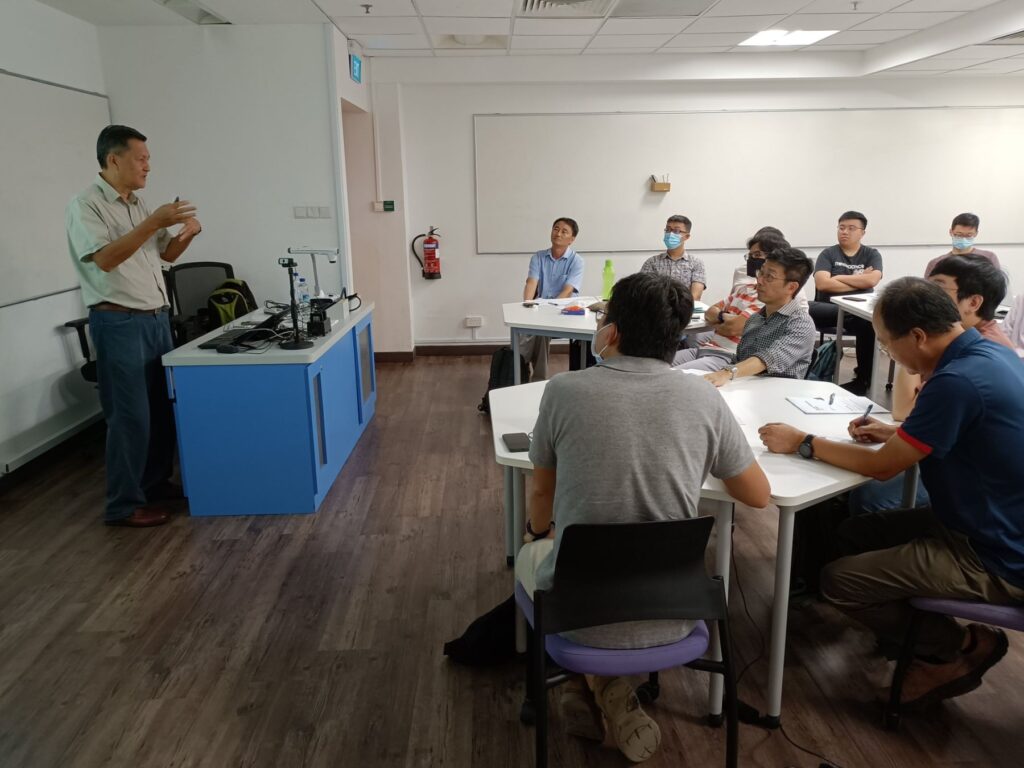
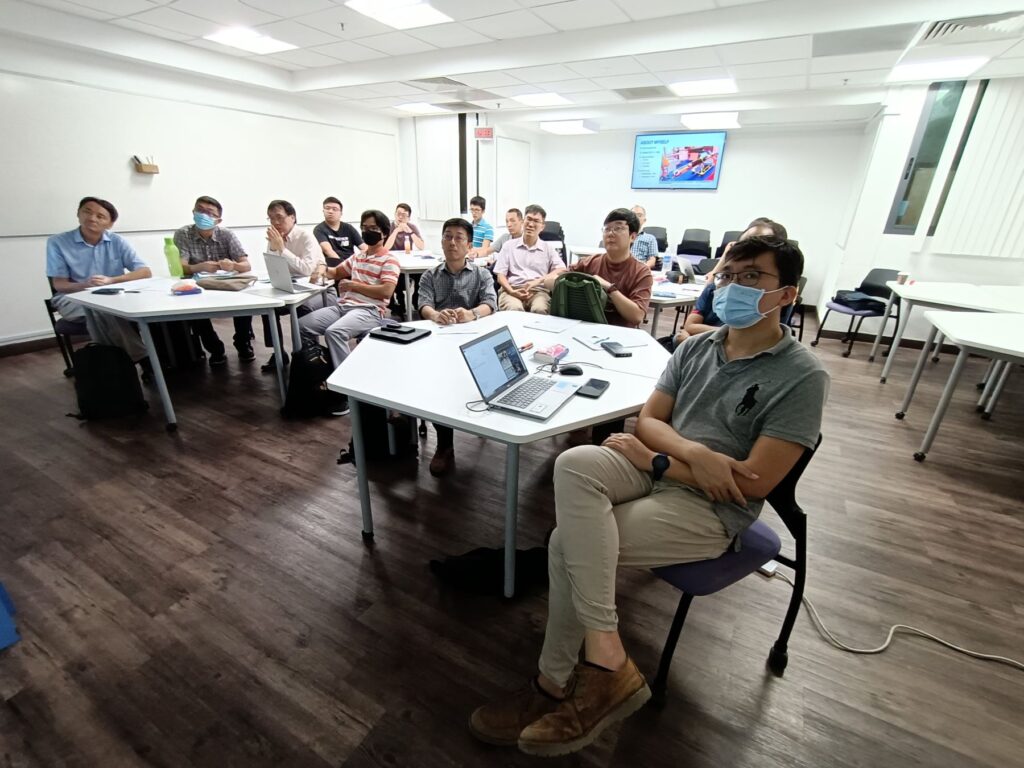
TDSI’s Executive Course “Systems Engineering and Analysis of Emerging Advanced Technologies for Defence Applications”
It is important for the Singapore defence forces to be at the frontier and be knowledgeable about emerging technologies for defence applications. The executive course on “Systems Engineering and Analysis of Emerging Advanced Technologies for Defence Applications” aims to present concepts and methods for engineering and analysing emerging advanced technologies, that include artificial intelligence and directed energy weapons, for defence applications. Course participants from the defence technology community have learnt and gained insights from the course that introduced concepts in complexity theory, strategic thinking, technology assessment, systems engineering and systems analysis. Course participants were appreciative that the learning gained have value-added to their current work with their primary affiliated organisations in the defence eco-system.
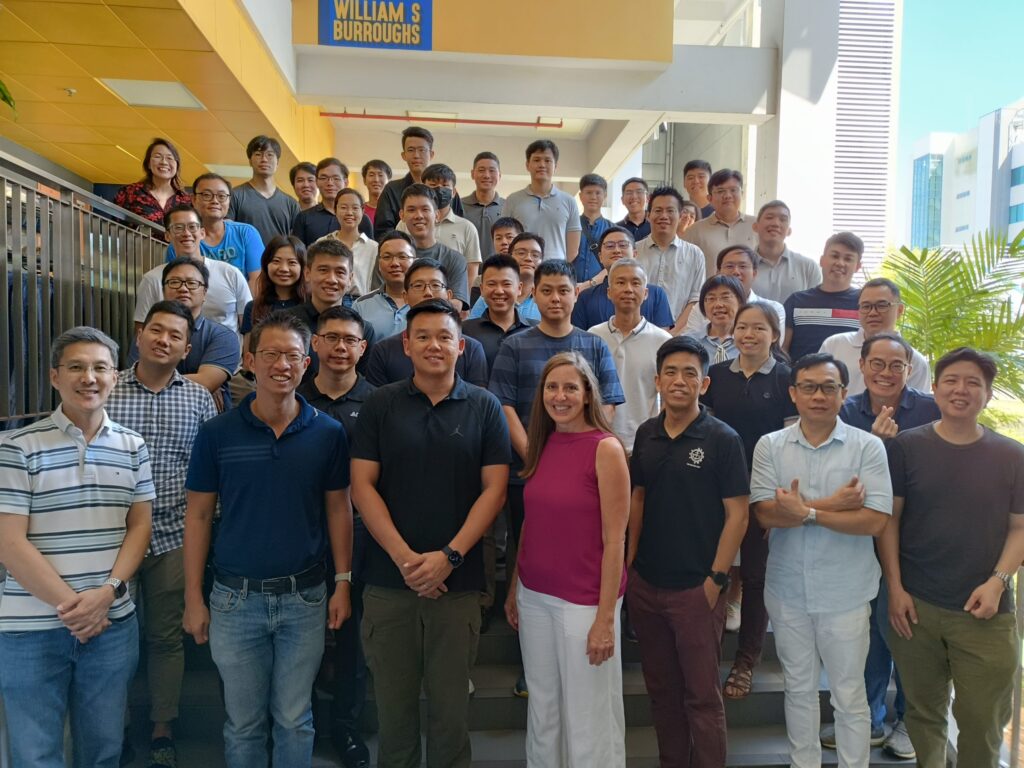
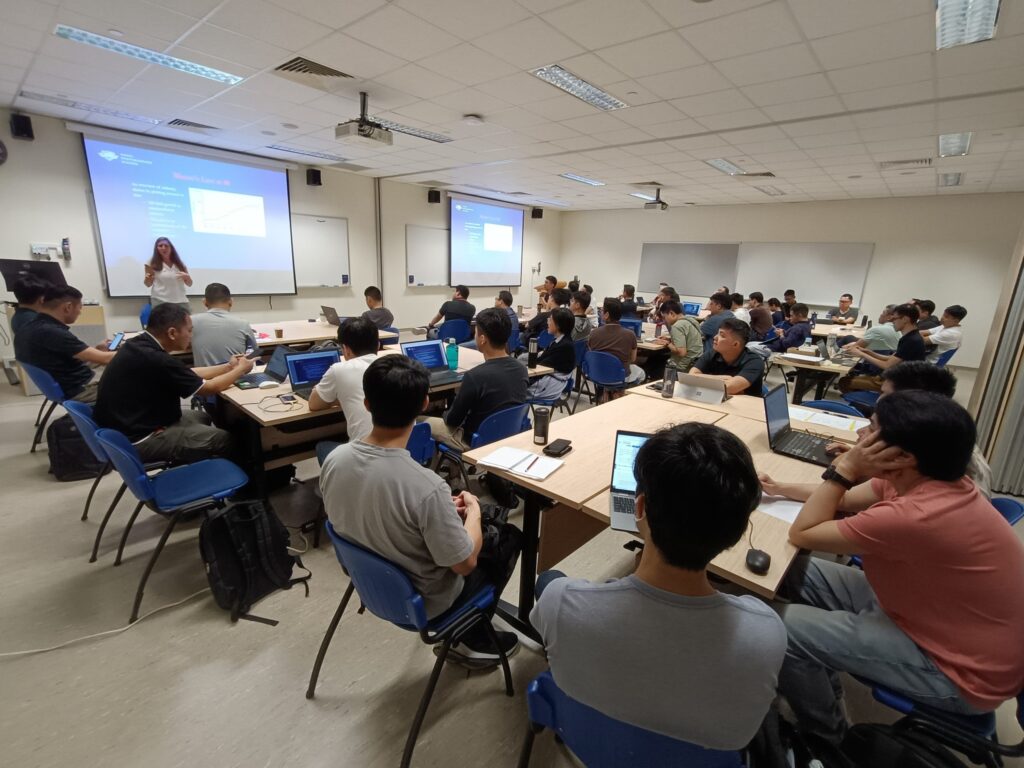
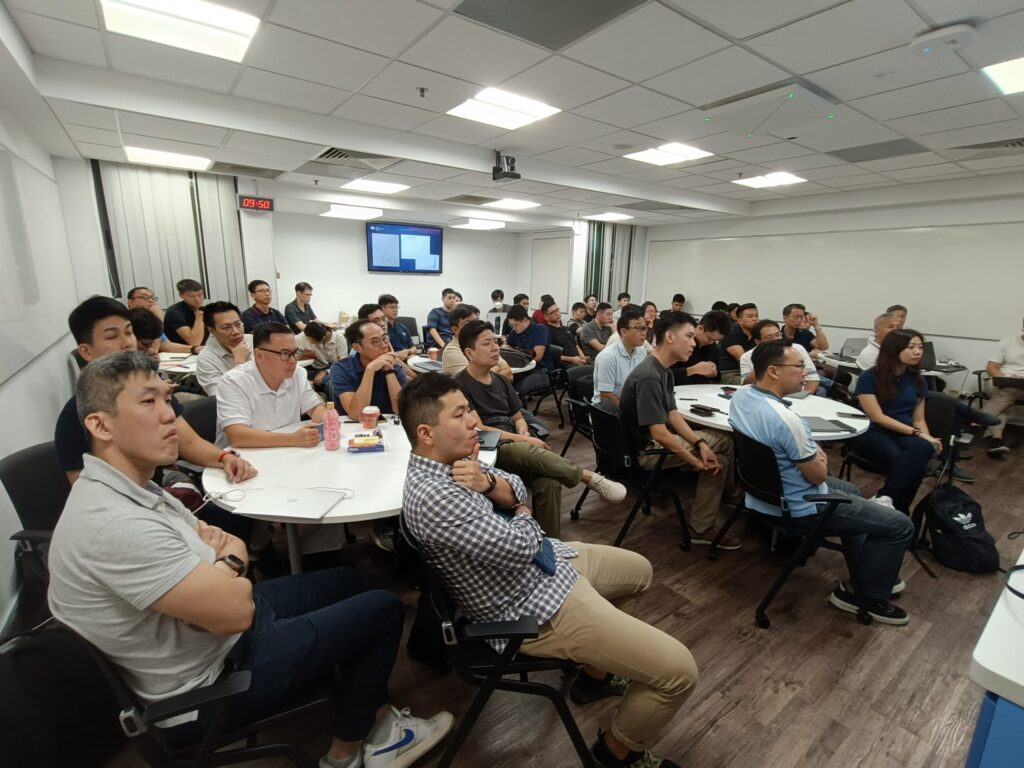
TDSI’s Executive Course “Generative Artificial Intelligence”
Artificial Intelligence (AI) technologies have been widely adopted in operations and work processes/ systems at the national level and in various industries. Generative AI is the latest cutting-edge technology that has been launched to extreme popularity, with progressive adoption by enterprises and industries because of its capabilities that can boost productivity and value-add decision-making, alongside many other deployment opportunities. Recognising the increasing importance of Generative AI for the defence sector, TDSI organised the executive course on this in-trend technology for the Singapore defence technology community to equip them with the fundamental knowledge of key concepts and applications of Generative AI, included algorithms such as generative adversarial networks (GANs) and variational autoencoders (VAEs). Course participants learnt how Generative AI could enhance military operations, from synthetic training data generation to scenario planning and decision support systems. This course is well-recognised by the Professional Engineers Board and qualified for 12 Professional Development Units.
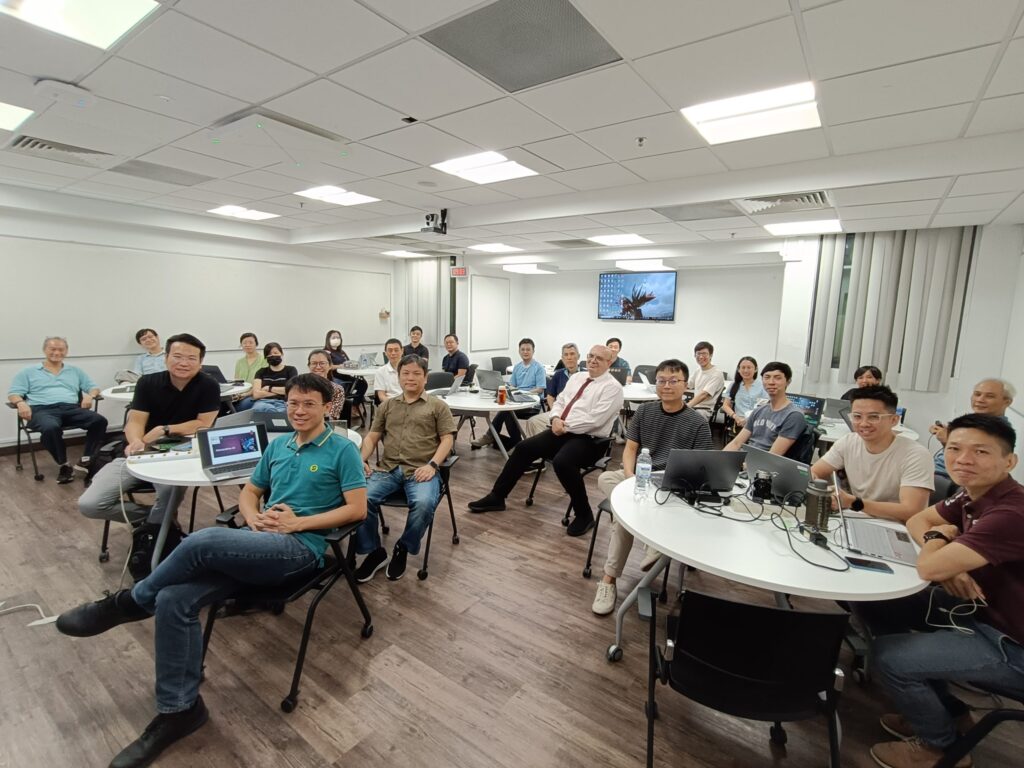
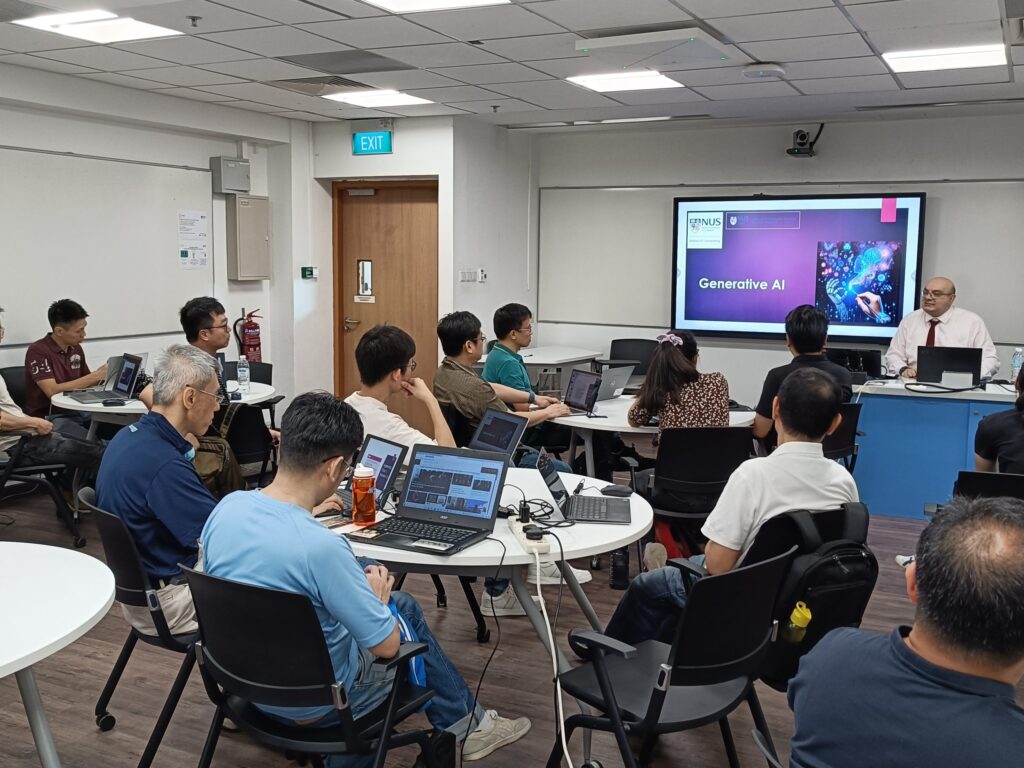
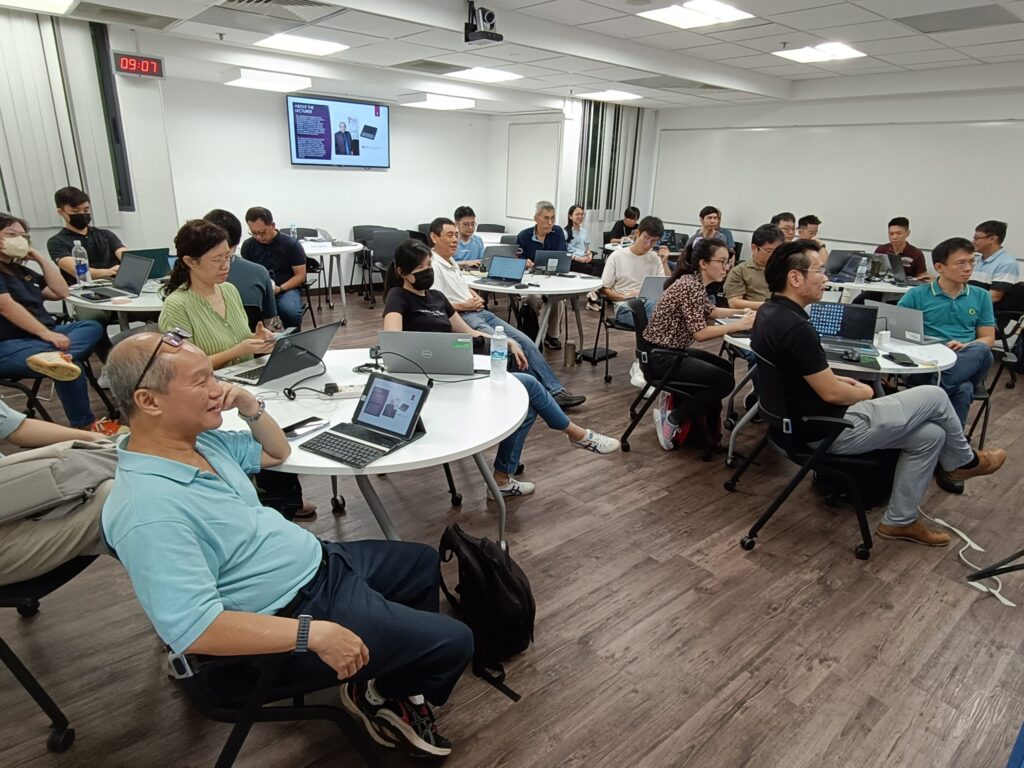
TDSI’s Executive Course “Swarm Intelligence and AI-Driven Unmanned Aerial Systems”
Swarm intelligence has become increasingly important for the defence community to learn as the technology is reshaping how autonomous systems operate in complex and contested environments. It is strategically important for the defence professionals to understand swarm intelligence technology to gain operational advantage, and with technology readiness, to ensure resilience and shape the future of warfare. Swarm intelligence is also a dual-use technology that could be applied from search-and-rescue and disaster response to maritime surveillance, making it essential for multi-domain operations. This 3-day intermediate-level course of TDSI focused on the fundamental and advanced concepts of multi-agent autonomous systems in the context of aerial swarms, specifically on the latest state-of-the art and practical applications. The course also provided a comprehensive overview of robotics and multi-agent systems, swarm formation, communications, task scheduling and allocations, swarm operations, as well as applications for heterogeneous systems and an introduction to game theory.
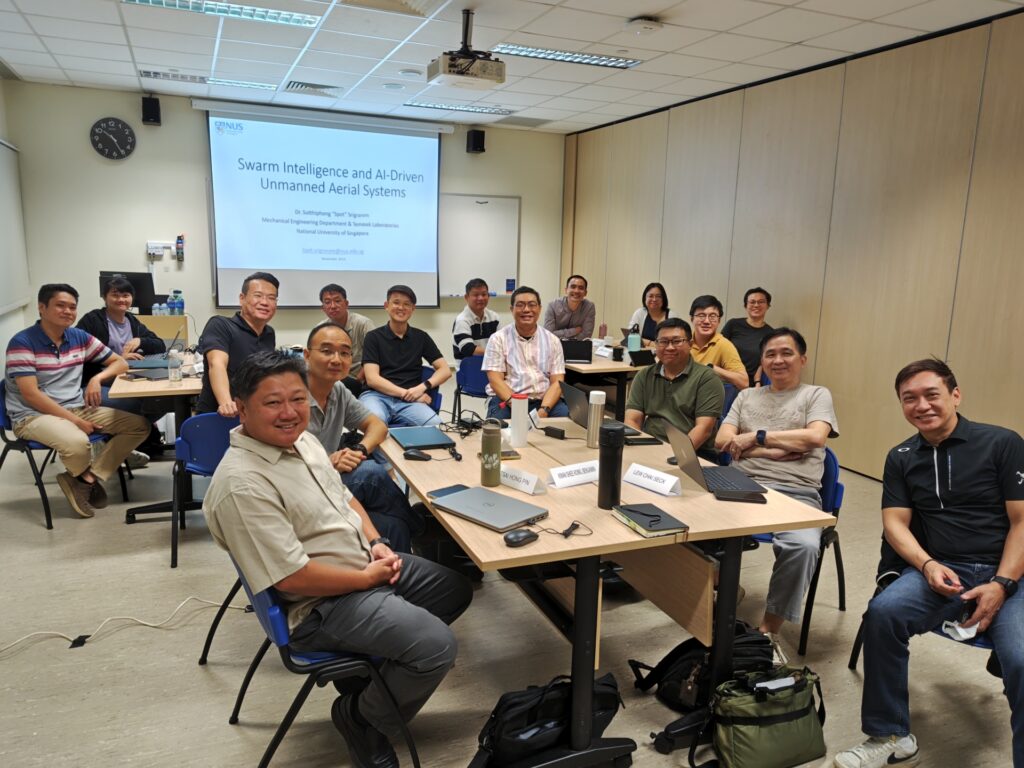
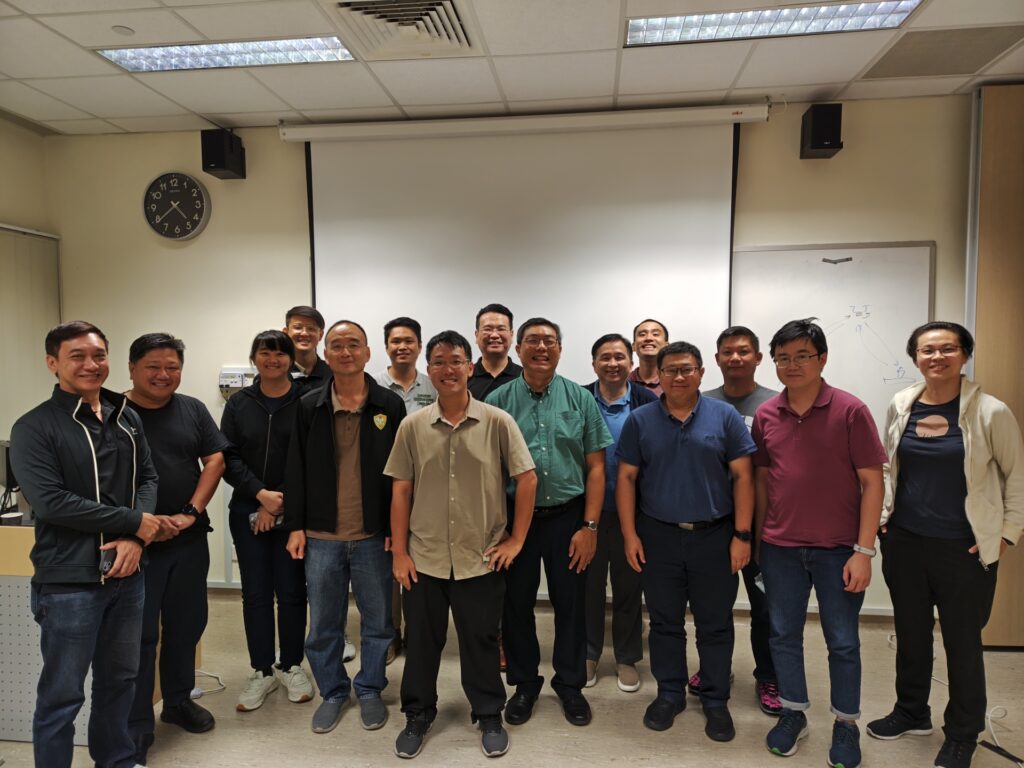

Modelling, Simulation, and Analysis:
From Emergence to Strategic Decisions
Overview
In an era of escalating complexity, modelling, simulation, and analysis serve as indispensable tools for unravelling intricate systems, forecasting outcomes, and making well-informed decisions.
This seminar begins by demystifying modelling—the process of abstracting reality into more manageable frameworks. Three primary model types are introduced: learning models, which identify patterns within data; optimisation models, which pinpoint ideal solutions under given constraints; and simulation models, which replicate complex systems to examine emergent behaviours. While each has a distinct focus, these models frequently intersect. Effective modelling must maintain a careful balance between scientific rigour, completeness, and simplicity.
Simulation models take centre stage due to their exceptional ability to foster systems thinking. Unlike analytical models, simulations expose emergent properties—unexpected outcomes arising from the interplay of individual components. They can be categorised according to various factors. We will explain how to understand their differences and correctly select the most suitable applications.
The path from simulation to practical insights unfolds across five analytical layers: 1) “Evaluation” for predicting outcomes or estimating probabilities, 2) “Ranking and selection” for various scenarios or decisions, 3) “Optimisation” to identify best solutions within extensive search spaces, 4) “Static policy design” for devising rapid-response strategies under specific scenarios, and 5) “Dynamic adaptation” by developing interaction rules that can be implemented in real time changing environment.
Although technical execution typically relies on expert support, those responsible for the problem itself must thoughtfully decide “what to model”, “which analytical layer to prioritise”, and “how best to integrate the outcomes into strategic decisions”. This seminar bridges theory and practice, empowering participants to leverage modelling, simulation and analysis as catalysts for innovation and resilience.
Learning Outcome
Course Outline
Who Should Attend
Lorem ipsum dolor sit amet, consectetur adipiscing elit. Ut elit tellus, luctus nec ullamcorper mattis, pulvinar dapibus leo.
Speakers
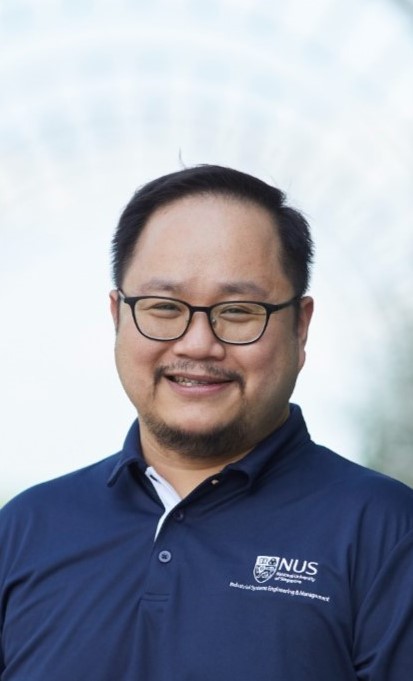
Dr Li Haobin
Senior Lecturer, Department of Industrial Systems Engineering and Management, National University of Singapore
Dr. LI Haobin is a Senior Lecturer in the Department of Industrial Systems Engineering and Management (ISEM) at the National University of Singapore (NUS), the Co-Director of the Centre of Excellence in Modelling and Simulation for Next Generation Ports (C4NGP) and Academic Director of the MSc in Maritime Technology and Management (MTM) programme. Dr. Li’s research focuses on discrete-event simulation modelling methods and stochastic simulation optimization for complex industrial systems, with applications in next-generation logistics, maritime ports, and smart manufacturing.
Dr. Li started his studies at NUS in 2005, majoring in Industrial and Systems Engineering with a minor in Computer Science. He graduated with a First Class Honours degree in Engineering in 2009 and obtained his Ph.D. in 2014. After a brief period as a postdoctoral researcher at NUS, he joined the Institute of High Performance Computing (IHPC) at the Agency for Science, Technology and Research (A*STAR) as a research scientist in 2015. In 2017, he returned to NUS as a Research Assistant Professor and was promoted to Senior Lecturer in 2020. He leads the teaching of the “Systems Thinking and Dynamics” course, which is a core module at the NUS College of Design and Engineering.
Details
- 26 Jun 2025, 2:00 pm - 3:00 pm
- 1 hour
- NUS, Blk EA, #02-11
Status
This event is now closed.
